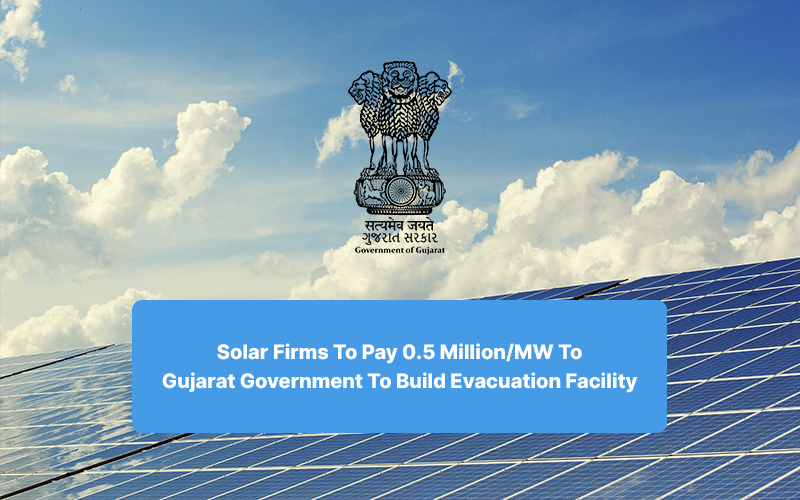Solar ventures based in Gujarat cities like Anand, Surat and Gandhinagar might have to pay 0.5 million for each megawatt produced, to build and bolster evacuation facilities for power through solar plants. Gujarat Government has been working closely with the Gujarat Electricity Regulatory Commission(GERC) and solar firms based in the state to establish a better situation for solar procurement in the area. This was a major revelation after the state government made amendments regarding the net metering regulations for grid-connected solar rooftop systems. “The proposal has just been made by Renewable Energy Committee of the Gujarat Board and public opinion is welcomed, where issues for establishing tariffs would be discussed.”, said Mr. D. R. Parmar, director of GERC.
Excerpts From The Proposal:
- This proposal will enable the proceeds of production and its resultant to be shared both by the beneficiaries and the generating company. The proposal said developers can retain 100 percent of the proceeds made by the clean development mechanism. Clean Development Mechanism was one of the proposals implemented after the Kyoto Environment Protocol in 2005 for redundancy in industry-related emissions. After the first year of development, the beneficiaries will get a share of 10 percent, with subsequent addition in the next years. This will continue up to 50 percent after which beneficiaries and the solar venture will have an equal share on the project.
- The Commission had planned to discontinue the generic tariffs for solar-powered projects and introduce competitive bidding to generalize rates for solar power. For small scale projects, which adds up to 5MW, an additional tariff of $0.003/kwh will be applicable.
- Consumer Billing Cycle will be introduced for those solar projects which are not registered under the Registered Energy Certificate Mechanism. The Renewable Energy Mechanism Certificate was created by the board of RECS International which will bolster trade within countries regarding renewable energy. It was created to stimulate international development for renewable energy products.
- For solar projects that are registered under REC, the surplus energy not consumed will be compensated at a rate of $0.02 per unit and will be used to charge up homes in rural and peri-urban areas.
- For the third party generated projects under the REC mechanism, 100% of production charges and losses will apply to the consumers. This will be based on the locations targeted by the owner of the solar company. If the owner is targeting two or more locations the total price will increase up to $0.0007 per unit.
- This proposal would eliminate the petition to the state government by solar developers and will give an open access for solar-powered projects.


Great content! Super high-quality! Keep it up! 🙂
Thank you for the appreciation. We are glad you liked the post.